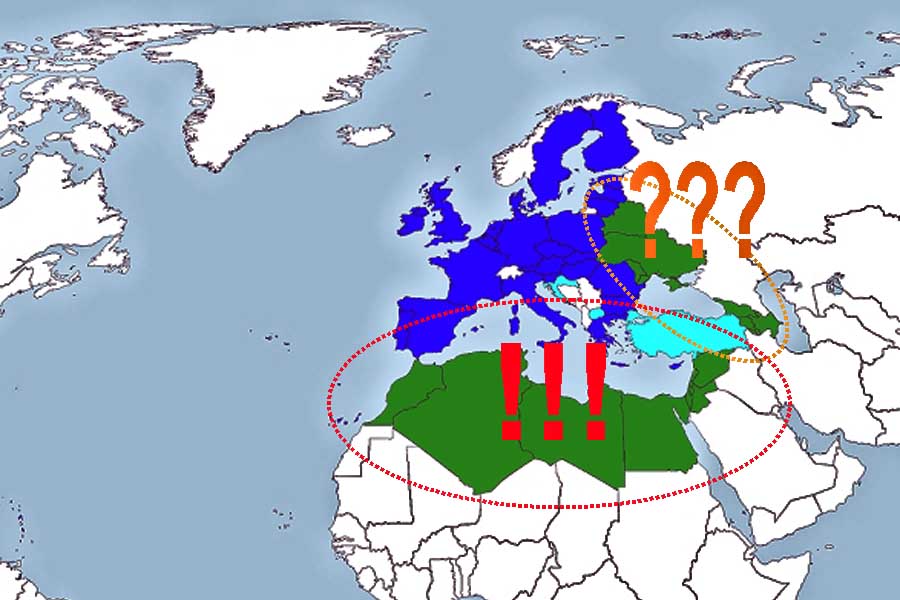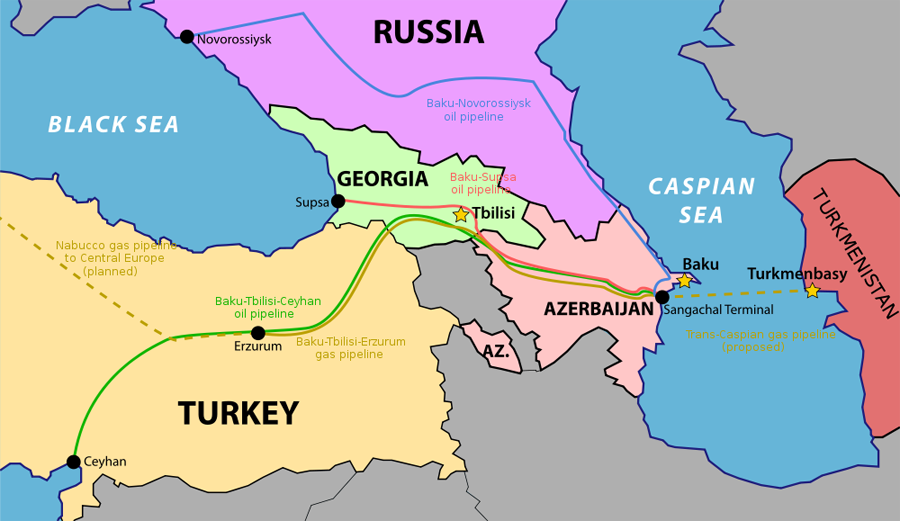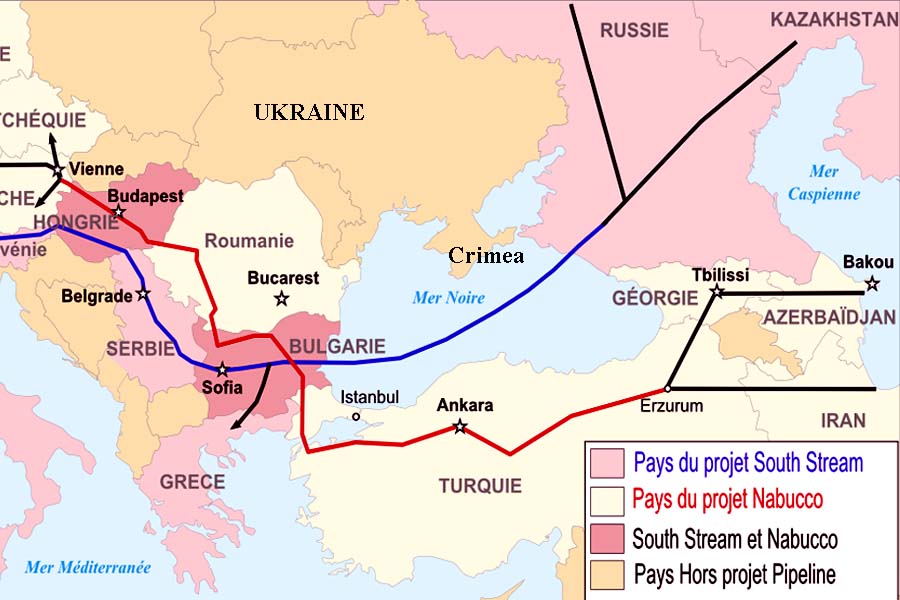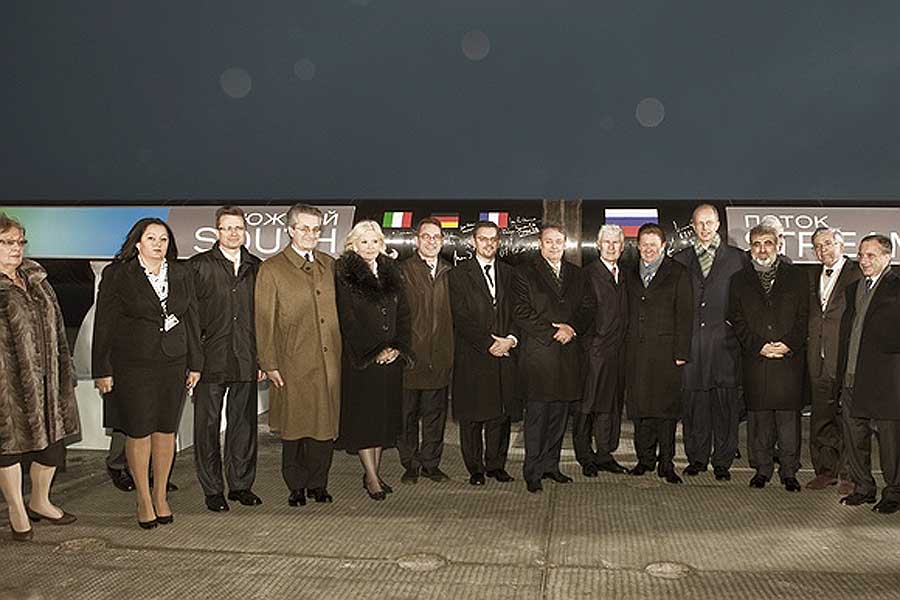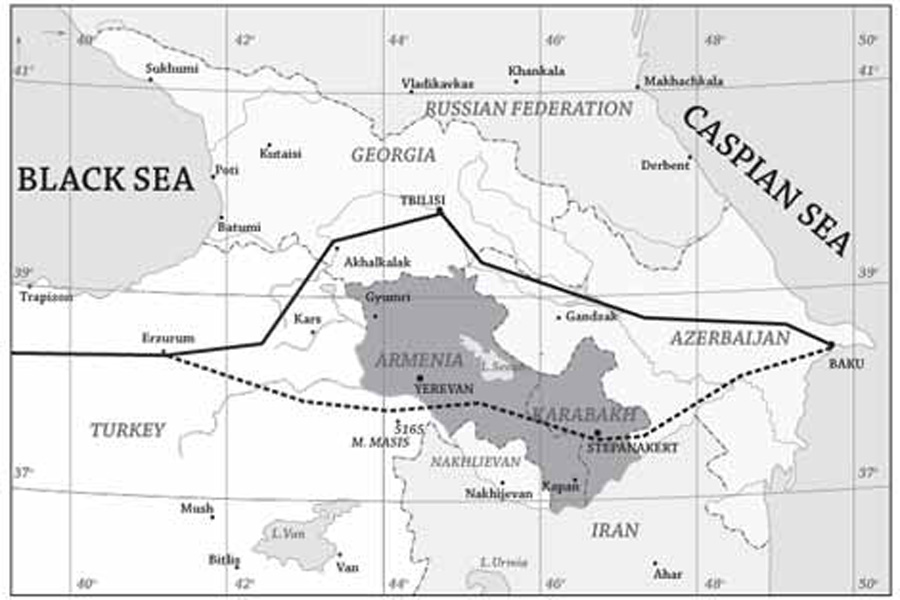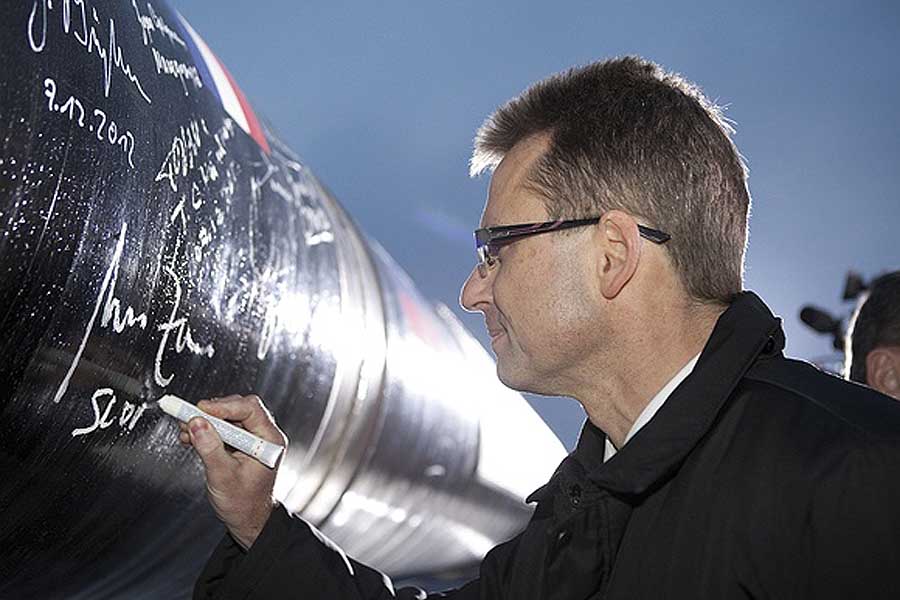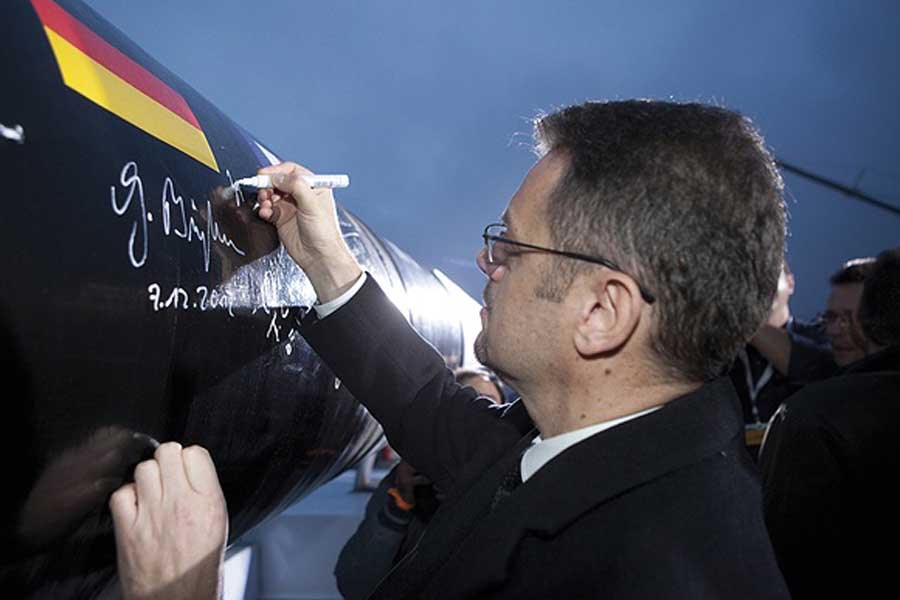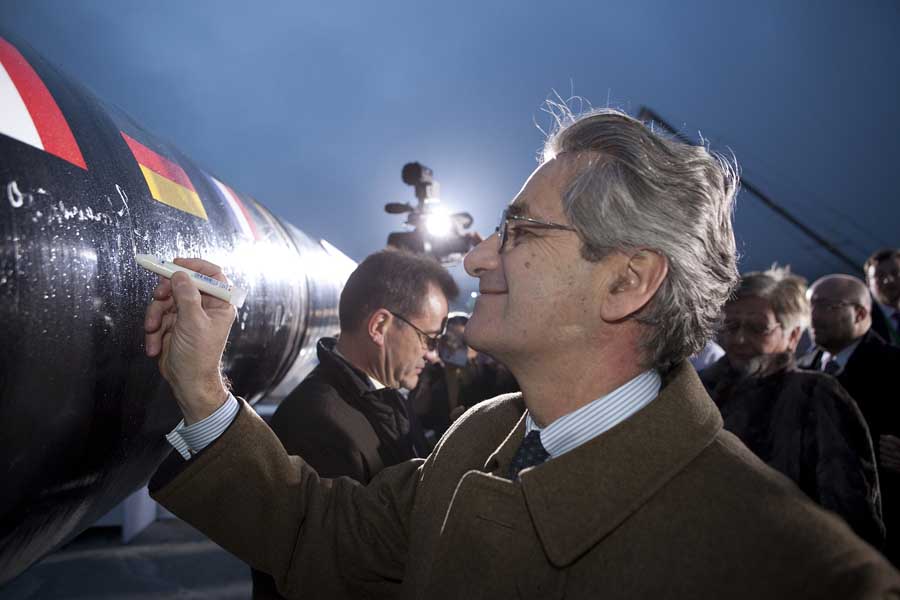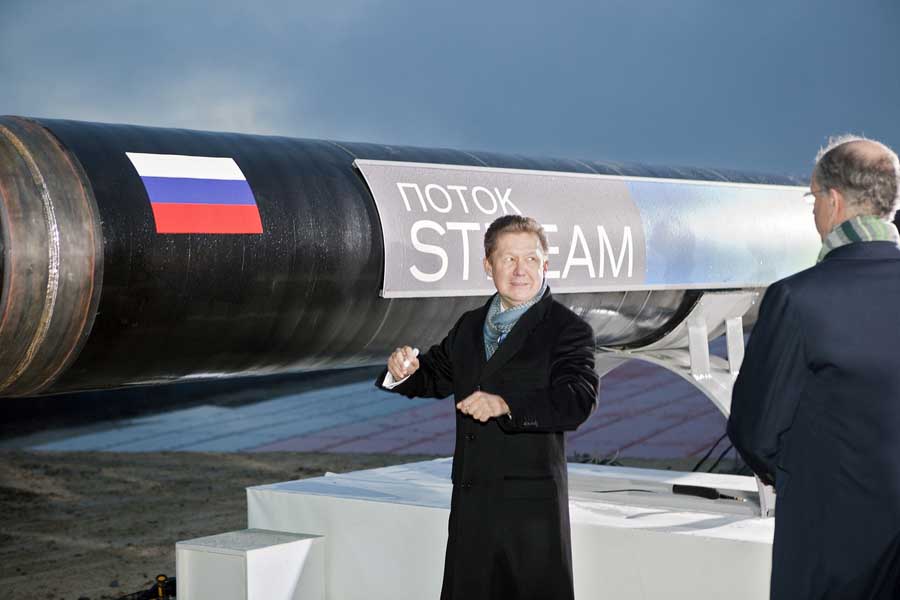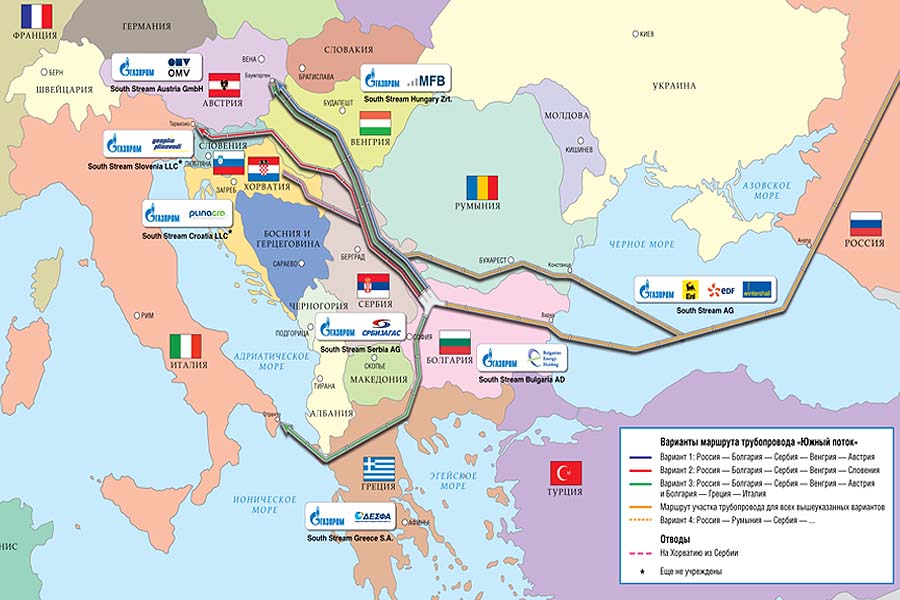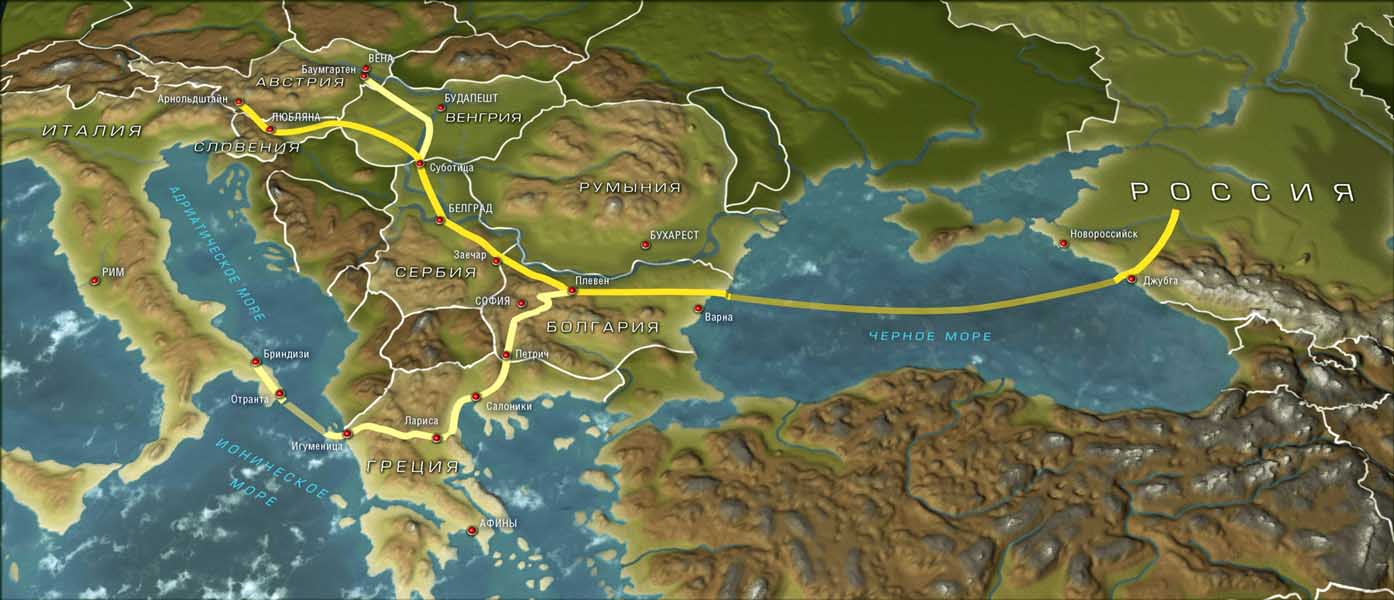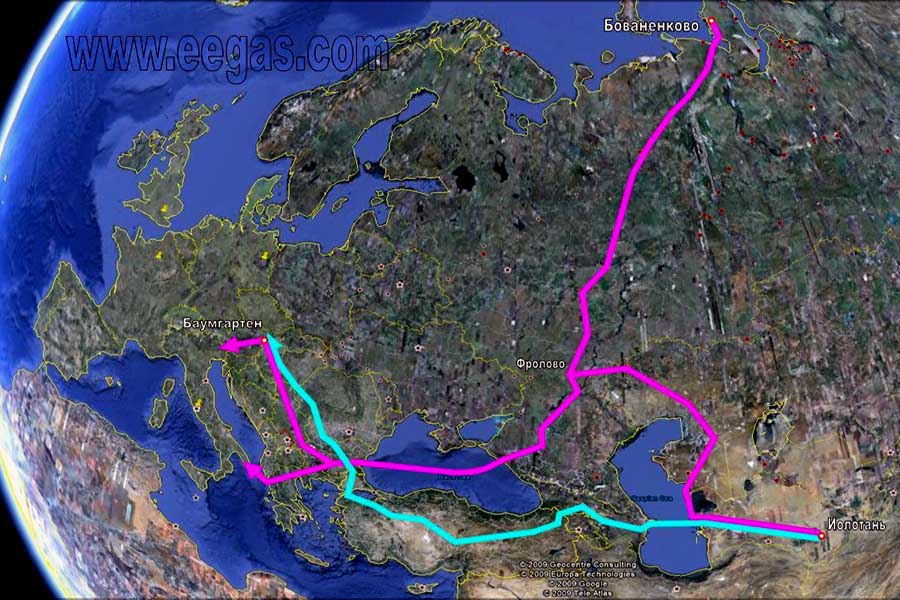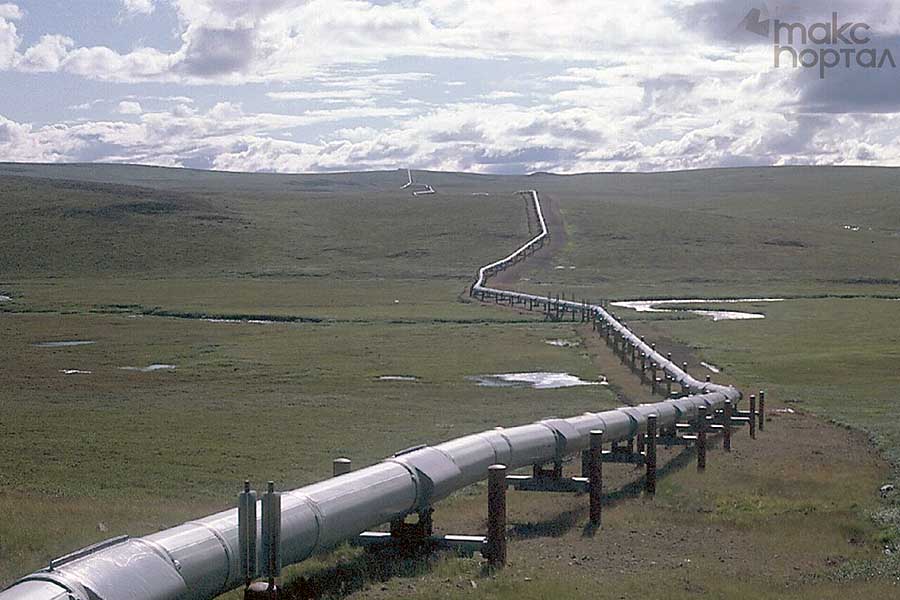The European Neighbourhood Policy's First Decade In The Eastern Neighborhood
Elena GNEDINA, Nicu POPESCU,
Center for International and European Studies (CIES) at Kadir Has University, Istanbul,
specially for BSNews.
Selection of illustrations - Editorial BSNews
This article looks at the first decade of the European Union's (EU) neighborhood policy vis-a-vis its Eastern neighbors. In this period, the EU undoubtedly developed and intensified its relations with most of its eastern neighbors, but has hardly managed to 'change' them or significantly alter the course of their development. The article looks into the successes and failures of the EU. It argues that in the last decade the degree of interdependence in trade, security and political domain between the EU and its neighbors increased dramatically. This made the EU become more involved than ever in the political developments in its neighborhood. However the EU has not succeeded in turning its growing political and economic presence into power, i.e., the ability to achieve what it wants. The reasons for this include the political centralization among most of EU's eastern partners; the fact that these states did not commit to pro-EU policies, choosing instead 'multi-vector' foreign policies; and the fact that the European Neighbourhood Policy (ENP) was a third-tier priority for the EU.
Key words: European Neighbourhood Policy (ENP), European Union (EU), eastern neighborhood, Eastern Partnership (EaP), Association Agreements, DCFTA.
* * *
A decade ago, on 15 April 2002, the EU Council launched the process of development of what later became the European Neighborhood Policy and the Eastern Partnership (EaP). The first substantial step in this process was a joint letter by Javier Solana, then EU High Representative for Foreign and Security Policy and Chris Patten, Commissioner for External Relations, calling in August 2002 for the need to avoid dividing lines in Europe that might result from the EU's eastward enlargement by building 'closer trade links and approximation and/or harmonization of legislation and progressive extension of all relevant EU policies'. (1) Such an approach was clearly inspired from EU enlargement.
Throughout this decade the policy of the European Union (EU) towards its neighbors was renamed, rebranded and re-launched numerous times. What started as the 'new neighbours initiative' went through several reincarnations with names such as 'Wider Europe', 'European Neighbourhood Policy', 'European Neighbourhood Policy Plus', 'Black Sea Synergy', 'Enhanced European Neighbourhood Policy' and finally the 'Eastern Partnership' launched in 2009. Such hectic soul-searching was driven not so much by semantic perfectionism, as by a deeper dissatisfaction of how the neighborhood policy was evolving, or more exactly with how (in)effective it was in changing EU's neighbors in line with EU's objectives. In this the picture has been mixed, as the EU undoubtedly developed and intensified its relations with most of its Eastern neighbors, but has hardly managed to 'change' them or significantly alter the course of their development.
This article will takes stock of the EU policy in the eastern neighborhood - which comprises of Armenia, Azerbaijan, Belarus, Georgia, Moldova and Ukraine – in the last decade. It looks into both the European Neighbourhood Policy (ENP), but also the Eastern Partnership which is a sub-specie of ENP. The article will first look into the successes of the EU. It argues that in the last decade the degree of interdependence between the EU and its neighbors drastically increased dramatically with the EU becoming the biggest trading partner of most of the eastern neighbors; embarked on association and free-trade talks; deployed crisis management operations; and offered visa facilitation and visa-free dialogues. But the EU has not succeeded in turning this presence into power. In security and democracy terms, it has failed not only to achieve most of its objectives, but also to prevent a deterioration of trends on the ground. The article argues that the reasons for the underperformance of the EU lie in a set of factors that include political centralization among most of EU's eastern partners, the fact that these states did not commit to pro-EU policies, but chose 'multi-vector' foreign policies that sought to balance between East and West and the fact that the ENP was a third-tier priority for the EU which spent most of the last decade being concerned with other priorities ranging from enlargement and institutional reform in the EU to managing the global economic crisis and responding to the 'Arab Spring'.
EU interdependence with its neighbors
The EU and its neighbors are highly interdependent. This refers to the EU's economic, political and security spheres as instability or poverty in the neighborhood can spillover. But, the EU's interdependence with its neighbors goes even deeper since events in the neighborhood do not affect only the EU's relations with third states, but can reverberate inside the EU and impact core areas of European integration - from developments in the energy sphere, the state of the Schengen borderfree zone to political solidarity among EU member states. The last several years are replete with examples. For example, at the outset of the Arab Spring an inflow of refugees into Italy in early 2011 led to France imposing temporary border controls on its southern border, and Denmark introducing customs controls on the border with Germany.
Developments in the neighborhood also affected EU energy security and policies. For example the Russian gas cut offs to Ukraine in 2006 and 2009 led to several EU member states being affected by sharp declines in gas supplies and, consequently, to freezing apartments in mid-winter in countries like Slovakia or Bulgaria. (Stern 2006; Gnedina and Emerson 2009; Pirani, Stern, and Yafimava 2009) These gas cut offs also brought into the spotlight the excessive dependence of some new EU member states on Russian gas, and the potential negative effects of such dependence. (Noel 2008; Eikeland 2009) This factor also constituted one of the key impulses behind the adoption in the EU of the third energy liberalization package with provisions for unbundling of energy and electricity distributors. Gas crises also soured relations between Russia and the EU. As the former refused to ratify the Energy Charter Treaty that the EU had been promoting since the early 1990s, the EU started to look for energy supply diversification by reaching out to suppliers in Africa and the Middle East.
wikimedia.org
Trust and solidarity among member states have also been affected by developments in the neighborhood. The 2008 war between Georgia and Russia led to significant 'under-the-carpet' divisions between EU member states on how to assess and respond to the war. The war put a significant strain on trust and solidarity between some EU member states that tended to side with Georgia and others that tended to blame it for provoking Russia.
The EU's increasing presence
With such degrees of interdependence it is not surprising that the EU has tried to become increasingly active in its eastern neighborhood. This growing presence is at least due to the development of the European Neighbourhood Policy which led to a growing diplomatic EU presence and attention to the region, an increase in trade, and greater involvement in the settlement of conflicts.
Since 2004, the EU has been more present in the eastern neighborhood than ever before. (Popescu and Wilson 2011) The EU now trades more than Russia with Moldova, Georgia, Armenia and Azerbaijan, and until the economic crisis hit, it was also the case for Ukraine for most of the last decade. (Gnedina and Sleptsova 2012) The EU is also moving towards Deep and Comprehensive Free Trade Agreements (DCFTA) with most of its neighbors.
Following the 2006 and 2009 gas crises the EU intensified energy cooperation with the neighboring states. The EU offered Ukraine and Moldova to join the Energy Community to stimulate energy sector reforms in these countries. Its main rationale is to bring Ukraine and Moldova to align with the EU legislation in the energy sector (along with the Balkan states), while freeing energy transit from political interference and energy blackmail. Ukraine and Moldova assumed wide-range legal obligations to bring their domestic gas prices in line with the global market price, unbundle energy supply and distribution, create an independent regulatory authority and increase the overall transparency of their energy sectors.
wikimedia.org
The EU has also become increasingly involved in conflict management in the eastern neighborhood. It is a mediator in the talks between Moldova and the secessionist region of Transnistria, and it deploys a 120-strong EU Border Assistance Mission (EUBAM) to Ukraine and Moldova. It also has a 200-strong EU Monitoring Mission in Georgia and is a mediator in the Geneva talks between Russia, Georgia and its secessionist regions of Abkhazia and South Ossetia. (Popescu 2009)
Two dozen EU high-level advisors are embedded in the Armenian and Moldovan governments working with local institutions to promote reforms, and a Border Support Team has worked with border guards in Georgia. Since the launch of the the ENP, the EU and its member states have also beefed up their diplomatic presence in the neighborhood. The number of EU delegations in the region has increased from two at the launch of ENP (in Ukraine and Georgia) to six, so that the EU is now represented in each of the eastern neighbors. The size of these delegations has also been increasing.
The EU's contractual relations with its neighbors have also advanced. The EU is negotiating Association Agreements with Moldova, Georgia, Armenia and Azerbaijan, and de facto finished negotiations with Ukraine. The EU has also launched a dialogue on visafree regimes with Ukraine and Moldova, and embarked on visa-facilitation agreements with Georgia, Armenia and Azerbaijan. EU funding for the eastern and southern neighborhood has gone from €8.4 billion in the 2000-2006 financial perspective to €11.2 billion for 2007-2013 - an increase of 32 percent.
The EU's approach has been based on offering some carrots and using almost no sticks (except for travel bans and asset freezes for Belarusian leaders and a currently 'suspended' travel ban for Transnistrian leaders). In a sense, this approach has been a success. However, despite the EU's increased activism, the speed and determination of EU actions was often out of touch with the needs and negative trends on the ground.
The EU's limited power
Despite an increasing EU presence in the eastern neighborhood, EU policies in the region fell short of being effective. The EU still falls short of being a powerful actor in the region. Power is not simply a matter of resources deployed on the ground and rising shares in foreign trade. Rather, it is primarily the ability to achieve outcomes, set the agenda and define what others want.(Rettman 2011) Despite increasing EU presence in the region's economic, political and security processes, Brussels has not been able to nudge its neighbors towards more democracy and reforms and greater support for EU interests and values in the region. The EU's influence on its eastern neighbors' reform and democratization trajectories or foreign policies and on conflict resolution in the region has been marginal. In other words, its presence has not turned automatically into power. In fact, as the EU's attention on and involvement in the eastern neighborhood has grown, its ability to influence political developments in the region has stagnated at best.
"Welding the Partnership" Celebrations. From left to right: Zsuzsa Németh, Minister of Development of the Republic of Hungary; Lilyana Pavlova Nikolova, Minister of Regional Development and Public Works of Bulgaria; Zvonko Černač, Minister of Infrastructure and Spatial Planning of Slovenia; Antonio Zanardi Landi, Ambassador of Italy to Russia; Zorana Mihajlović, Minister of Energy, Development and Environmental Protection of Serbia; Dr. Georg Birgelen, Ambassador of Germany to Russia; Zoran Stavreski, Deputy Prime Minister and Minister of Finance of Macedonia; Marcel Kramer, CEO of South Stream Transport B.V.; Dr Henning Voscherau, Chairman of the Board of Directors of South Stream Transport B.V. and former mayor of the city of Hamburg; Alexey Miller, Chairman of the Gazprom Management Committee; Dr Kurt Bock, Chairman of the Board of Executive Directors of BASF; Taner Yıldız, Minister of Energy and Natural Resources of Turkey; Jean-Pierre Chevenement, Special Representative of French Minister of Foreign Affairs for Russia; Henri Proglio, Chairman and CEO of EDF. www.south-stream-offshore.com
Despite the existence of the ENP, in the last decade, political developments in the region have mainly evolved in the negative direction. While the EU was certainly not responsible for that, such developments are indicative of the EU's limited ability not just to promote EU norms and values, but even to prevent negative trends in the region. Nearly every state in the region has a deeply flawed political system. Azerbaijan has switched to a de facto lifetime presidency in 2008, while the Armenian elite staged an arranged presidential succession in the same year which triggered clashes that left at least 10 people dead. Despite Georgia's tremendous reform achievements such as drastically reduced corruption, deep reform of state institutions and an improved business climate, its politics still remains hugely divisive, power excessively centralized and the 2008 war will have a longer term negative impact. Belarus ended two years of rapprochement with the EU with a crackdown on the opposition after the election in December 2010.
reporter.am
Between 2005 and 2010, the leaders of Ukraine's Orange Revolution squandered their power and Viktor Yanukovych moved quickly to assert a dangerously high degree of political centralization after being elected president in 2010. Former prime minister Yulia Tymoshenko was jailed, while Ukraine's freedom of the media declined. The chances that the October 2012 parliamentary elections will be 'free and fair' are rather small. Tensions with the EU are not far from the surface. The EU suspended the signature of the DCFTA and Association Agreement with Ukraine. Diplomatic tensions also escalated when the EU ambassador in Kyiv criticized Ukraine for not improving the business climate and the Ukrainian government retaliated by implying the ambassador behaves like a 'political commentator' meddling in domestic affairs. (Rettman 2012)
Zvonko Černač, Minister of Infrastructure and Spatial Planning of Slovenia
Even more worrying for the EU, what were once supposed to be big carrots are not necessarily perceived as such by the states of the region. In Ukraine the EU managed to de facto finalize negotiations on a DCFTA (and the Association Agreement) with huge difficulties, but the signing of the agreement is temporarily suspended as the EU refuses to take such a step as long as Yulia Tymoshenko is in prison. New lawsuits were filed against Tymoshenko increasing the sense of defiance towards the EU. Whereas in the past the EU ambition was to overhaul entire political and economic systems, now all the EU efforts are geared towards preventing major crises and most blatant human rights violations. The failure to sign the agreements with Ukraine is indicative of how the EU's supposedly biggest carrot - access to the single market - is unable to sway the policy preference of the Ukrainian government over such a crucial domestic political issue. Even if the agreements are signed, one question is looming: if the carrot of the DCFTA is not big enough to make Yanukovych free the opposition leaders, would it be sufficient enough for the Ukrainian authorities to implement wide-ranging and costly reforms?
Zoran Stavreski, Deputy Prime Minister and Minister of Finance of Macedonia
The prospects for DCFTA with Georgia have also not been uncontroversial. Georgia launched talks with the EU on a DCFTA in early 2012, yet this happened against significant internal skepticism fuelled by fears that adopting EU standards will burden the economy with red tape, and will not bring tangible benefits. (Messerlin et al 2011) Justified or not, such fears are hardly testimony of the EU's attractiveness. Even some European officials are having second thoughts about the DCFTA. "It brings no short-term benefits and incurs a lot of costs," says one. "It is far from being a carrot." (2) The economic crisis and the stagnant European economies also make DCFTA potentially less attractive (see below).
Behind the EU's failure to turn its presence into power in the eastern neighborhood lie three structural trends. The first is regional: the increasingly authoritarian and semi-authoritarian regimes in most of the neighborhood states. The second is global: the emergence of a multi-polar world that allows countries in the eastern neighborhood to play a balancing role between the various external actors. The third is internal: the preoccupation of the EU with institutional reforms and the management of the economic crisis.
Strong regimes, weak states
A primary reason for the EU's reduced power in the region is the type of political regimes that emerged in the region. In the best case most the leaders of the Eastern
Partnership states wanted an ENP 'a la carte' where they would pick and choose the benefits of economic cooperation with the EU, while avoiding to really commit to the ENP agenda in its entirety that also presupposed democratization and anti-corruption efforts.
Antonio Zanardi Landi, Ambassador of Italy to Russia
Despite small exceptions, the general trend among the EU's eastern neighbors during the last decade has been state capture and authoritarian consolidation rather than transition towards democracy and market economy. The elites in most neighborhood countries prefer "stabilization" to transition: they would rather freeze the status quo of partial reform, in particular by blending oligarchic networks with corrupt officials, rather than strengthen state institutions. Elites thus get the benefits of state capture (e.g., the virtual privatization of state institutions which are used for private gains) while local societies bear the cost. As a result, much of the eastern neighborhood is stuck somewhere between dictatorship and democracy, and between command economies and free markets. There are two relative exceptions. One is Georgia where power is centralized around president Saakashvili, but much of it was used to promote reforms. And the second is Moldova which is quite democratic, but its politics is unstable and the reform process is still unconsolidated.
This process of domestic political consolidation has drastically reduced the opportunities for EU influence. Very often, the problem is not that the EU is not offering enough to its neighbors but rather that authoritarian consolidation makes it more and more difficult for the EU both to induce change and to promote its interests and values. The neighborhood states are now much less permeable to EU influence than Central Europe or the Balkans.
Multi-vector foreign policies
The second trend that has significantly undermined the EU's influence is an increasingly assertive Russia and the rise of other powers in the region. Whereas the EU had a quasi-monopoly of influence in Central Europe and the Balkans in the 1990s, it must now compete with Russia, Turkey, Iran and increasingly even China for influence in the eastern neighborhood. Since the early 1990s, the EU's eastern neighbors have adopted 'multi-vector' foreign policies. They often used this policy to play up and on the divisions between Russia, the EU and the United States (US) in order to extract concessions from all interested parties. Now, with weakened and distracted Western partners, the scope for 'multi-vector' foreign policy is even wider, and the EU influence is smaller.
Alexey Miller, Chairman of the Gazprom Management Committee
'Multi-vector' foreign policy has originated from the desire of domestic elites to exploit the links of interdependence with both Russia and the EU, without making costly commitments to either. Its underlying conditions have not changed. Russia and the EU remain major trade partners for states in the neighborhood. Whereas many export-oriented sectors are critically dependent on Russia; the modernization of their economies depends on the EU. As the EU increased its engagement with these states, Russia started promoting its distinct agenda - a blend of Soviet nostalgia, integrationist policies and managed democracy - more assertively in the region. As the EU helps its neighbors to resist Russia's most adventurous propositions by lending them political and economic support, Russia offers them more leeway in their relations with the EU.
New trends do not play to the EU's advantage. If before the 2008 global economic and financial crisis post-Soviet business elites saw major opportunities -investments, credits and technologies - originating in the West, with liquidity and demand for their products in the West drying up, the business elites are now looking for business opportunities originating elsewhere. (Gnedina and Sleptsova 2012) Russia and sometimes China offered credits to shore up neighboring economies, while Russian businesses, propped up by the government, intensified business expansion to the post-Soviet states. As a result, the post-Soviet business elites, who were among the major supporters of European integration only a few years ago, now see such a prospect less favorably. When the 'Eurozone' crisis is over, many will see the West and its markets attractive again - until then the EU will struggle to gain the attention of the governments of the region.
gazprom.ru
Finally, EU influence is undermined by Russian activism in the neighborhood. In January 2010, Russia, together with Belarus and Kazakhstan, created the Customs Union -- its ambition being to lay the ground for a future Eurasian Union. Ukrainian officials alluded that Ukraine might leave the Energy Community, of which it became a full member in 2011, after Russia has promised to renegotiate gas contracts in return. Their main complaint is that the EU is doing nothing to stop Russia's plans of building the South Stream gas pipeline across the Black Sea, which would increase Ukraine's energy and political vulnerability vis-à-vis Russia. (Pavlenko 2012) Azerbaijan has been wooed into doubling gas exports to Russia - a move that may undermine the faltering Nabucco pipeline project. (Cichkin 2012) It, however, has not withdrawn its support for other pipelines that would transport gas from Central Asian states to Europe perhaps hoping to negotiate concessions from Russia and the EU at a later date.(Socor 2012)
Integration with either Russia or the EU is hardly the main scope of the neighboring states. As more powers appear to compete for influence in the region, the EU's neighbors find maneuvering between them more convenient and even profitable. As they get closer to the EU, they feel they could extract concessions from Russia. As they turn towards Russia, the EU is often ready to weaken its conditionality, soften its criticisms and offer more beneficial deals. In other words, the EU's neighbors enjoy engaging in bargaining with all powers in the region, with the EU being one, but not the only game in town.
A policy in under-drive
It is in this context that the EU's commitment to its neighborhood policy has often been half-hearted. As a senior EU official puts it, "our partners are less interested in the ENP than we are, and we are not that interested ourselves". (3) Although the EU has a massive presence in the neighborhood, it has had a laid-back, hands-off attitude to the ENP: it was something the EU expected its eastern neighbors to deliver themselves and at their own pace, as if it had little stake in the outcome.
The main reason for this lack of commitment has been that, since the launch of the ENP in 2003, the EU has been preoccupied first with its own institutional reforms and then - almost immediately after they had been completed - with the consequences of the global economic crisis and the Eurozone crisis. But even in terms of foreign policy priorities, many member states were much more focused on other issues such as the wars in Afghanistan and Iraq and the rise of China. The lack of any positive dynamic in the eastern neighborhood itself, especially after hopes briefly flared with the "colored revolutions" of 2003-4, also created apathy and fatigue.
But even on key issues where the EU's public appeal and visibility was at stake - for example, conflict resolution -lacked coherence. Before the Lisbon Treaty came into force, the EU's policies on post-Soviet conflicts were run by the European Council and were therefore not even technically part of the ENP, which was administered by the European Commission. However, the greatest difficulties came from the reluctance of key member states to play a substantial role in conflict resolution in the eastern neighborhood, mainly for fear of irritating or complicating relations with Russia. Although the Georgia-Russia war of 2008 was not the EU's fault, it failed on numerous occasions to pursue conflict prevention policies in the run up to the war. For example, in 2005, the EU refused to take over the Organization for Security and Co-operation in Europe (OSCE) border-monitoring mission to Georgia, which had been terminated by Russia. This created much more room for gradual destabilization and growing security tensions. The EU has also frequently tried to compensate for this lack of a clear political strategy with money. All too often, it tried to buy itself political influence by offering limited aid rather than designing functioning political and security strategies, which merely reinforced the perception of the EU as a cash cow.
The EU also acted as if soft power could replace rather than complement hard power. It hoped that the eastern neighborhood states would listen to the EU and converge with it simply because it was attractive rather than because it offered something. However, the EU's reliance on soft power alone has failed to alter trends on the ground - all the more so because the EU's halfhearted engagement with its neighbors has actually cost it a lot of soft power in the region. Apart from the elites, the public increasingly see the EU as irrelevant to them. For example, support for EU integration in Ukraine plunged from 65 percent in 2002 to about 40 percent at the end of 2008. (4)
The Impact of the economic crisis
The global economic crisis, and its effects on the Eurozone, has further negative effects on EU foreign policy capacity in general, and its potential in the neighborhood as well. The crisis is far from over, but several effects can already be discerned. A first effect is that foreign policy has been pushed to the background. When political leaders and administrations are engaged full time in managing the economy - saving the Euro, reducing public spending or stemming the tide of unemployment - foreign policy is pushed even more to the bottom of the list of priorities. Leaders simply have less time and desire to understand or strategize about how to react to foreign policy events. As a result, foreign policy issues which sometimes need not just competent diplomatic management, but also high-level political drivers, are relegated to the working level - where many issues cannot be solved. Foreign policy matters are thus perceived like issues that need to be put aside or postponed until more urgent problems are solved.
The crisis is also likely to have an impact on the EU's financial resources dedicated to foreign policy. Virtually all EU governments are reducing their foreign policy resources - from bilateral assistance to staff in their respective embassies. The resources available to the European Commission have not been seriously affected yet. However, as the EU member states are negotiating the EU budget for the 2014-2020 financial perspective, maintaining the same level of financial commitment to EU foreign policy might be rather difficult.
While all of this is a substantial problem for all great powers, including the US and Russia, the EU is most affected, because in the absence of hard power it has relied so much on economic power, conditionality and financial aid as its main foreign policy tools. Traditionally, the EU took a lot of pride in the fact that it is the biggest donor in the world. But even before the acute phase of the Eurozone crisis, the political relevance of EU aid in the emerging world was undermined by alternative sources of funding for many of the emerging countries -from China, Russia, or their own burgeoning economies. Now the EU not only has to compete for political influence with other aid donors which is debilitating in itself, but it might also face the need to reduce its foreign policy funding. This is the EU's foreign policy double dip: the loss of relative influence compared to the other powers (due to their rise), supplemented now with the loss of foreign policy resources both in relative and absolute terms.
Another casualty of the economic crisis is EU soft power, which has traditionally been based on the EU's attractiveness as a prosperous, well-functioning model of integration. Stagnation and economic contraction in much of the EU, news reports showing Greek profligacy or protesters burning cars, German indecision on supporting other EU member states and EU summits failing to reassure the markets over the future of key Eurozone countries, are a huge blow to how the EU is viewed by its neighbors and partners. The draining of 'soft power' is costlier for the EU than for other powers like the US, whose 'soft power' also had to suffer as a result of the crisis, but whose 'power portfolio' is better hedged. The US at least retains hard power; whereas the EU had no hard power, and its 'soft power' is seriously undermined.
Conclusion
Since the launch of the ENP in 2003, the EU has significantly build up its presence in the eastern neighborhood - through increased assistance, association talks, more trade, and crisis management missions. But the EU has not been able to turn this presence into the power to change and shape the neighborhood in accordance with its views. Since the launch of the EaP in 2009, democracy in the eastern neighborhood has further deteriorated, media freedom has worsened, and corruption has grown in most countries of the region. There is no quick fix or silver bullet to solve this situation.
The EU has made all the right promises but either did not deliver on many of them or moved to deliver too slowly. Rectifying this will matter a lot. For example, it took 10 years from the promise of a stake in the EU internal market to the launch of actual negotiations with states like Moldova, Georgia and Armenia. Such speed is simply inadequate.
Thus the first and foremost priority for the EU is not to invent new incentives, but to deliver on promises it has already made, particularly by being less protectionist in trade negotiations and by intensifying visa dialogues. All too often, EU promises from the highest level have been blocked, delayed or watered down in working groups in Brussels. Better delivery will enable the EU to insist with greater assertiveness on better delivery from its neighbors, which also have a bad record in sticking to their promises.
The EU also needs to invest more in high visibility initiatives and even populist policies in the neighborhood that replicate what the European Commission sometimes tries to do inside the EU. Examples include putting more political weight behind the promotion of air transport liberalization and the expansion ofthe European Common Aviation Area to the eastern neighborhood. More integrated air transport between the EU and neighboring countries makes perfect sense: it will improve tourist, business and family ties. The EU could let its eastern neighbors join the EU-wide cap on roaming charges, reduce bank-card charges when travelling abroad, or encourage neighbors to join EU smoking bans. The EU should cut budgetary support to the governments that cross the line. It should redirect funds to support small and medium business and civil society in the neighboring states - often the most pro-European, although as yet not very influential, groups of society.
The EU should consider a drastic improvement of its visa policies, while maintaining a high level of security to assuage the concerns of many EU member states regarding migration flows. Even before states like Moldova and Ukraine fulfill the requirements of EU visa dialogues which would lead to mutual visa-free travel, the EU could introduce electronic Schengen visas for its neighbors.
The EU could move towards a two-tier visa system. Traditional Schengen paper visas should continue to be issued to the citizens of third country states to ensure a maximum degree of security. At the same time, a system of electronic visas should be introduced for bona fide citizens of Russia, Ukraine and Moldova (as pilot countries) who have travelled previously to the EU who have biometric passports and whose biometric data have already been stored in the Schengen-wide database. Under such a system all citizens of eligible countries who have been granted at least one conventional Schengen visa and have a biometric passport would be able to apply online for subsequent trips to the Schengen zone without having to go to an embassy or consulate by submitting the questionnaire and scans of all other required documents online. The information provided online would be checked against Schengen zone blacklists and when reasonable suspicions are raised, the individual in question would be redirected towards a conventional system of visa application.
The EU should also become the voice of EU businesses in the region through the creation of EU Chambers of Commerce that could act as concerted lobbies vis-à-vis their host governments to push for improved governance and a better business climate that reflects both EU standards and reduced corruption.
At a time of austerity, it is unlikely that EU member states will commit significant new resources to the EaP countries. This means that the EU will have to drastically improve delivery and enhance co-ordination. Bilateral funding should be pulled together into EU-wide consortia in order to better co-ordinate development assistance. Yet a rethink of how and, in particular, where the EU spends its money is also necessary. The EU should focus financial assistance on those neighbors that perform best in terms of reforms or that refocus virtually all of this assistance to support for civil society and democracy.
Ultimately, a tough environment such as the eastern neighborhood needs tougher approaches: tougher speak for friends, and tougher actions for the rest. Speaking the truth to friends may actually help them: tough love in private is ammunition against those parts of the elites that are not fully committed to reform or pluralism in places that are fundamentally pro-EU like Moldova or Georgia. But for the elites ofthe other states that routinely infringe democratic standards by imprisoning journalists or politicians without transparent and due processes tougher action might be needed, in the form of travel bans and asset freezes against the direct perpetrators of such abuses.
The EU is not likely to achieve many quick and easy successes in most of the eastern neighborhood. The three structural trends that have diminished the EU's power in the region will not be reversed overnight and the ENP is not likely to become a glaring success anytime soon. But given its interdependence with its neighbors, the EU has nothing else but to keep trying.
References
Chichkin, A. 2012. Toplivo s Yuga. Rossiiskaya Gazeta, January 23. http://www.rg.ru/2012/01/23/azergaz-site. html.
Eikeland, Per Ove. 2009. The third internal energy market package: New power relations among member-states, EU institutions and non-state actors. Journal of Common Market Studies 49, no. 2: 243-263.
Gnedina, E. and M. Emerson. 2009. The case for a gas transit consortium: A cost-benefit analysis. Policy Brief no. 180. Brussels: Centre for European Policy Studies. http://www.ceps.eu/book/case-gas-transit-consortium-ukraine-cost-benefit-analysis.
Gnedina, E. and E. Sleptsova. 2012. Eschewing choice: Ukraine's strategy on Russia and the EU. Working Document no. 360. Bruessels: Centre for European Policy Studies. http://aei.pitt.edu/33337/1/WD360 Gnedina_%26_Sleptsova_on_Ukraine.pdf.
Messerlin, P., M. Emerson, Gia Jandieri, and Alexandre Le Vernoy. 2011. An Appraisal of the EU's Trade Policy towards its Eastern Neighbours: The Case of Georgia. Brussels: CEPS Paperbacks.
Noel, P. 2008. Beyond dependence: How to deal with Russian gas. Policy Brief no. 9. London: European Council of Foreign Relations.
Pavlenko, E. 2012. God chlenstva Ukrainy v energeticheskom soobshestve: trudnosti perevoda.
Zerkalo Nedeli. February 3. http://zn.ua/ECONOMICS/ god_chlenstva_ukrainy_v_energeticheskom_ soobschestve_trudnosti_perevoda -96780.html.
Pirani, S., J. Stern and K. Yafimava. 2009. The Russo-Ukrainian gas dispute of January 2009: A comprehensive assessment. Oxford: Oxford Institute for Energy Studies www.oxfordenergy.org/wpcms/wp-content/ uploads/2010/11/NG27-TheRussoUkrainianGasDispute ofJanuary2009AComprehensiveAssessment-JonathanSt ernSimonPiraniKatjaYafimava-2009.pdf.
Popescu, N. 2009. EU Foreign Policy and Post-Soviet Conflicts: Stealth Intervention. London: Routledge.
Popescu, Nicu and Andrew Wilson 2011. Turning Presence into Power: the EU and its Eastern neighbourhood. ECFR Policy Brief no. 31. London: European Council of Foreign Relations.
Rettman, A. 2012. EU and Ukraine trade blame over ambassador's remarks. EUObserver, February 29. http:// euobserver.com/24/115435.
Rettman, A. 2011. Cablegate: France bullied Poland over Georgia's war. EUObserver, March 18. http:// euobserver.com/9/31941.
Socor, V. 2012. Shah Deniz Consortium Members Signal Conflicting Priorities. Eurasia Daily Monitor, February 22. http://www.jamestown.org/programs/edm/single/7tx_ ttnews[tt_news]=39041&cHash=7f36a5c70a38a8cef95 71d030ce35b38.
Stern, J. 2006. The Russian-Ukrainian gas crisis of January 2006. Oxford: Oxford Institute for Energy Studies. http://www.avim.org.tr/icerik/energy-gas.pdf.
End notes
(1) Joint letter on Wider Europe by Commissioner Chris Patten and High Representative Solana, 8 August 2002.
(2) Interview with EU official, Brussels, February 2011
(3) Interview with EU official, Brussels, February 2011.
(4) Razumkov Centre, 'Does Ukraine need to join the European Union?' sociological poll, 2002-2008. http:// www.razumkov.org.ua/eng/poll.php?poll_id=387.
About the Authors
Elena Gnedina works for a country risk consultancy in London. She holds a PhD from Queen's University Belfast (United Kingdom). She worked as a visiting research fellow at the Centre for European Policy Studies in Brussels (2008-2009) and has published on such issues as energy, security and democratisation in Europe. She spent prolonged periods of time in Ukraine and Moldova, working at the Institute for Economic Research and Policy Consulting (Ukraine) and the Foreign Policy Association (Moldova). She holds an MA in International Relations and European Studies from Central European University (Hungary).
Nicu Popescu, PhD, is senior research fellow and head of ECFR's program on Russia and Wider Europe. In 2010-2011 Nicu served as advisor on foreign policy and European integration to the Prime-Minister of Moldova where he dealt with a wide range of issues related to EU-Moldova relations, ranging from foreign policy aspects to domestic reforms such as air transport liberalisation and visa dialogue. He also published a book on EU foreign policy and the post-Soviet conflicts: Stealth Intervention (Routledge, 2009).
About the CIES
The Center for International and European Studies (CIES) at Kadir Has University was established in 2004 as the Center for European Union Studies to study Turkey's European Union accession process. Since September 2010, CIES has been undergoing a major transformation by widening its focus in order to pursue applied, policy-oriented research and to promote debate on the most pressing geostrategic issues of the region.
Its areas of research and interaction include EU institutions and policies (such as enlargement, neighbourhood policies and CFSP/CSDP), cross-cutting horizontal issues such as regional cooperation, global governance, and security, inter alia with a geographical focus on the Black Sea Region (including the Caucasus), the Mediterranean, Southeastern Europe, Turkish-Greek relations, and transatlantic relations.
About the Black Sea Trust
for Regional Cooperation
The Black Sea Trust for Regional Cooperation (BST), a project of thee German Marshall Fund of the United States promotes regional cooperation and good governance in the Wider Black Sea region; accountable, transparent, and open governments; strong, effective civic sectors; and independent and professional media. To respond to the rapid shifts in the region, BST staff regularly consult with regional experts and aim to sharpen the program's grantmaking strategy in order to more effectively achieve the Trust's goals. Taking into account the complexity and diversity of the region, BST priorities are revised regularly and adjusted to respond to the region's changing needs. Adjustments are made in consultation with the BST Advisory Board, the German Marshall Fund's network of offices and internal expertise, and in coordination with other donors active in the region.
About the Neighbourhood Policy
Paper series
The Neighbourhood Policy Paper series is meant to provide the policy, research and professional communities with expert input on many of the important issues and challenges facing, in particular, the Eastern neighborhood of the European Union today as they are written by relevant experts. The analysis provided along with the relevant policy recommendations strives to be independent and not representative of any one particular perspective or policy. These papers will also be translated into Russian so that they are accessible to the Russian speaking world in an attempt to enlarge the scope of the dialogue an input on Black Sea Region-related issues. The key priority is to maintain the focus of the policy debate on the Black Sea Region and the wider region.
Center for International and European Studies (CIES)
Kadir Has University Kadir Has Caddesi Cibali / Istanbul 34083 Turkey
Tel: +90 212 533 65 32, ext. 4608 Fax: +90 212 631 91 50 Email: [email protected] Website: http://cies.khas.edu.tr
Director: Dr. Dimitrios Triantaphyllou
The Black Sea Trust for Regional Cooperation
The German Marshall Fund of the United States B-dul Primaverii nr. 50 Corp 6 "Casa Mica" Sector 1, Bucharest, Romania
Tel: +40 21 314 16 28 Fax: +40 21 319 32 74 E-mail: [email protected] Website: http://www.gmfus.org/cs/blacksea Director: Alina Inayeh
ISBN 978-975-8919-72-7
